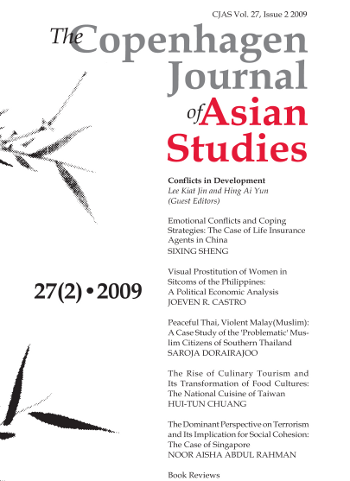The Rise of Culinary Tourism and Its Transformation of Food Cultures: The National Cuisine og Taiwan
DOI:
https://doi.org/10.22439/cjas.v27i2.2542Keywords:
Taiwanese food, culinary tourism, class politics, identity transformationAbstract
The rise of culinary tourism reflects political and economic transformations in Taiwan. This paper examines the relationship between the anxiety of the identity crisis is bubbling up in Taiwan and the way in which dietary culture becomes an important part of identity practice. Traditional Taiwanese cuisine has recently been given new recognition through the practice of culinary tourism. Previously disappearing ethnic foods have regained visibility in the haute cuisine market. The trend of ethnic cuisine restoration is a worldwide phenomenon; yet, in the Taiwanese case, it is unique because the particular food consumption pattern reflects the reconstruction of national identity as a significant reaction to previous colonial experiences and the globalization of food cultures. By analyzing the political transformations at macroscale of nation-state and the social phenomenon at microscale of food cultures, I will illustrate the social milieu which accounts for the changing cultural images of Taiwanese foods, as well as the way in which cultural identity is fashioned by producing and consuming these cultural images.Downloads
Published
2009-09-17
Issue
Section
Articles


